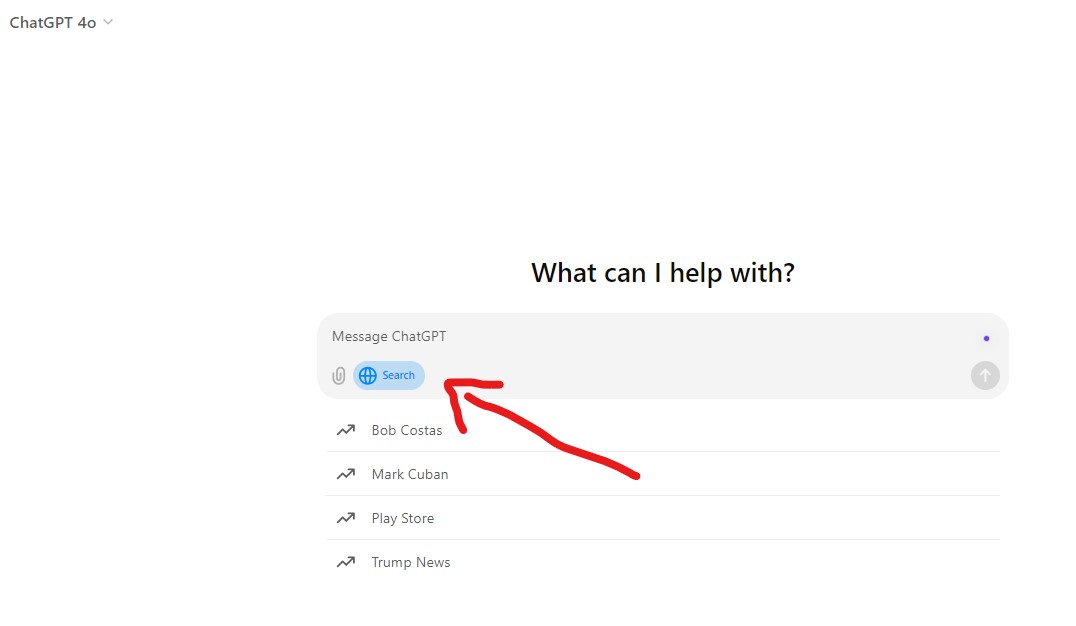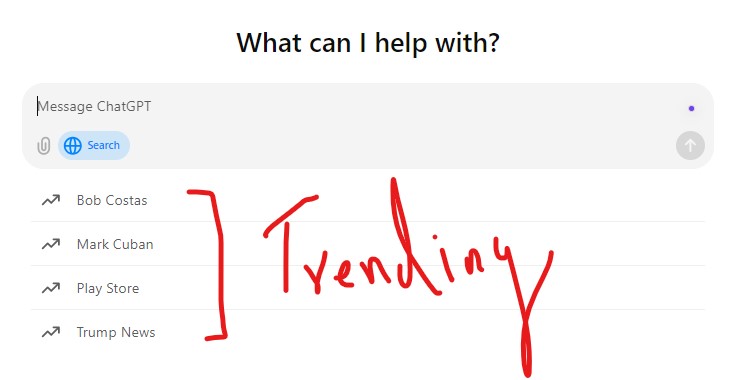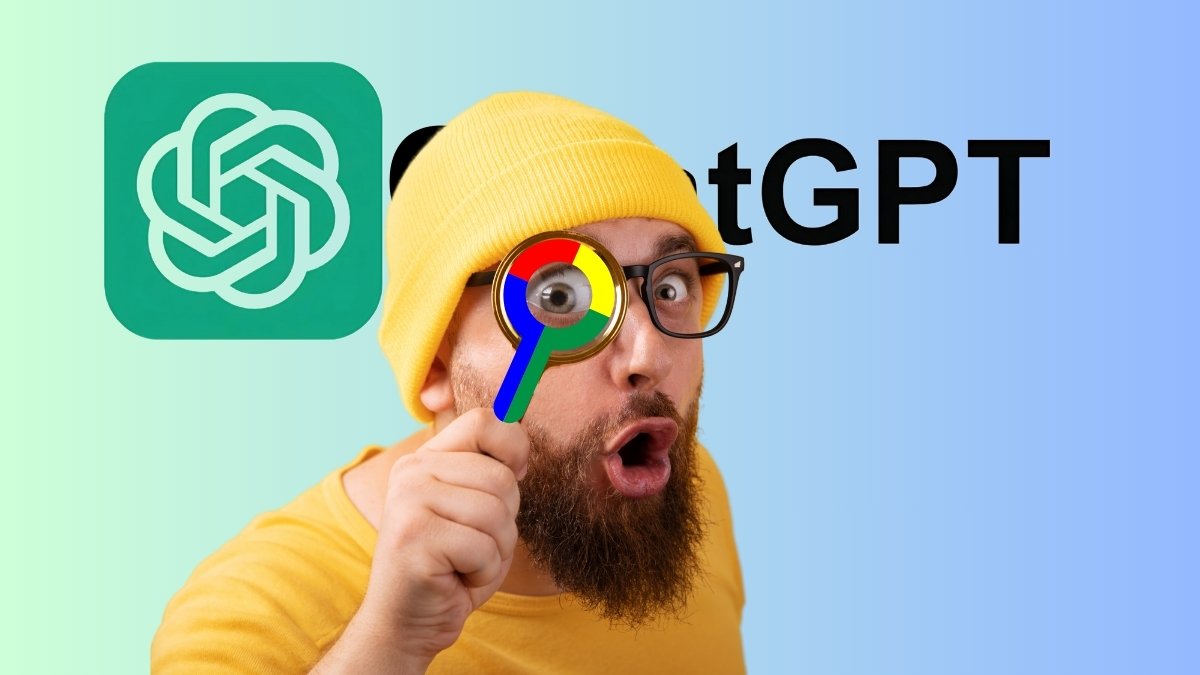With ChatGPT’s new web search functionality, we’re seeing a game-changer in how we search for information online. OpenAI’s leap into integrating real-time web data into ChatGPT has sparked interest, excitement, and yes – even some healthy competition with the longstanding search engine giant, Google.
Is ChatGPT really poised to shake up the search landscape? Let’s break down what makes this new search feature stand out, explore how it challenges Google’s search dominance, and give you a firsthand look at what this means for our daily web searches.

A New Era of Web Search: ChatGPT’s Game-Changing Features
What makes ChatGPT’s web search different, and why are people talking about it as a potential “Google killer”? Here are some features that set it apart:
1. Real-Time, Up-to-the-Minute Information
- Unlike traditional AI that operates on past data, ChatGPT now has access to real-time web data. If you’re curious about recent news, trends, or even stock prices, ChatGPT can pull this information directly from the web. Think of it as having your search engine and your research assistant rolled into one.
- (Tip for Users): Try asking ChatGPT about specific ongoing events or dynamic topics – from sports scores to tech updates. You’ll get instant context, plus suggested further questions to deepen your understanding.

2. Verified Sources and Transparent Attribution
- In the era of “fake news” and information overload, ChatGPT’s web search shines by providing source links to back up its claims. So, instead of sifting through multiple articles, you get a summarized answer plus the original sources. This means users can check facts and dive into the source material without needing to hunt it down themselves.
- (Extra Insight): Consider taking a quick look at each linked source, even if ChatGPT gives you the gist. Understanding the origin of information adds a layer of depth and helps you become a better-informed reader.
3. Conversational Responses with Contextual Flow
- One of the most engaging parts of ChatGPT’s web search is its ability to hold a conversation about your query. If you’ve ever wished you could ask Google follow-up questions or “clarify what you meant” mid-search, ChatGPT delivers that experience in a natural, back-and-forth conversation.
- (Pro Tip): When discussing a complex topic, feel free to ask ChatGPT to clarify terms or even explain concepts in different ways. It can be like having a casual conversation with a knowledgeable friend who doesn’t mind when you ask, “Could you explain that differently?”
4. On-Demand Searches within the Chat
Here are the results when I asked it about the “2024 Health Insurance Market Trends with data and graphs”

- Gone are the days of jumping between your conversation and the web browser. ChatGPT integrates searches directly into the chat, allowing users to prompt a new search right where they are. This makes the experience smoother and faster – no extra steps required.
- (User Advice): Use this feature to explore multi-faceted topics. For instance, if you’re researching “eco-friendly home improvements,” ChatGPT can help you dive into subtopics without needing to reopen your query every time.
How ChatGPT’s Web Search Holds Up Against Google’s Traditional Model
Google has been a powerhouse for years, but ChatGPT brings a refreshing take on the search experience. Here’s how it stacks up:
1. Engagement and User Interaction
- Google is efficient at delivering search results quickly, but ChatGPT’s interactive style offers a more conversational and engaging experience. You don’t just get links – you get explanations, context, and suggestions. Picture it as going from reading an article to having an insightful discussion.
- (Tip for Researchers): When searching for information that requires context (like industry analysis or scientific concepts), ChatGPT can simplify complex explanations in a way that’s easy to digest, saving you the time you’d typically spend piecing information together across articles.
2. Personalization and Adaptability
- Unlike Google’s algorithm-driven personalization, ChatGPT personalizes responses based on your conversation. Whether it’s changing how it explains things or remembering your previous question, ChatGPT feels a bit like a search assistant that remembers what you care about.
- (Try This): Customize your interactions with ChatGPT by providing feedback. If you prefer shorter answers, let it know! It adapts to the tone and detail level you want, making your searches even more tailored.
3. Beyond Search: Content Generation
- ChatGPT isn’t just a search tool – it’s also an assistant that can create content on the spot. Need a summary of a report? Done. Want a quick recipe based on what’s in your fridge? No problem. Google provides the ingredients; ChatGPT can actually write the recipe!
- (Example to Try): Experiment with ChatGPT’s content generation abilities by asking it for a summary of a news event or a draft email. It’s particularly useful for writing, making it a time-saver for busy professionals and students alike.
Real-World Applications: Who Stands to Benefit Most?
This new integration has massive potential for professionals, educators, and researchers, as well as casual users:
- Students and Researchers: Whether it’s for writing research papers or analyzing recent scientific developments, ChatGPT provides quick insights and citations, helping students cut down on research time.
- Professionals in Fast-Moving Industries: From stock brokers to journalists, having real-time information on hand helps professionals stay updated and make informed decisions on the fly.
- Content Creators and Marketers: Need blog post ideas, article summaries, or SEO insights? ChatGPT can assist with everything from ideation to content creation, with research baked right in.
(Final Thought)
While ChatGPT’s web search feature may not “replace” Google outright, it does offer an exciting alternative for those looking for a more conversational, integrated approach to finding information. Imagine the possibilities as this technology continues to evolve, potentially reshaping how we interact with information itself.
Wrapping It Up: Healthy Competition for the Win
ChatGPT’s web search feature may just be the push the tech world needs to rethink traditional search. Google’s place isn’t under immediate threat, but a little competition could bring innovations to both platforms, ultimately benefiting users. And as consumers, having diverse tools at our disposal – each with unique strengths – helps us make smarter, more informed decisions.
By blending real-time data, conversational interactions, and versatile content generation, ChatGPT stands out as an exciting, alternative way to search. Whether it’s a new “Google killer” remains to be seen, but one thing’s clear: the competition has never looked better.
